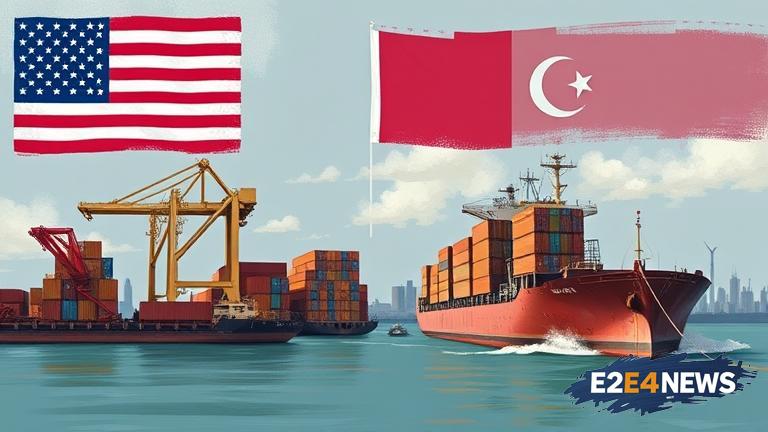The United States has imposed a 19% tariff on certain Indonesian goods, marking the latest development in the ongoing trade tensions between the two nations. This move is seen as a response to Indonesia’s alleged unfair trade practices, particularly with regards to the export of steel and aluminum products. The tariff, which was announced by the Trump administration, is expected to affect a wide range of Indonesian goods, including textiles, footwear, and electronics. The Indonesian government has expressed disappointment and concern over the move, stating that it will have a significant impact on the country’s economy. The EU has also weighed in on the issue, warning that it will take retaliatory measures if the US does not reconsider its decision. The trade tensions between the US and Indonesia have been escalating over the past year, with both countries imposing tariffs on each other’s goods. The US has accused Indonesia of unfairly subsidizing its steel and aluminum industries, while Indonesia has accused the US of protectionism. The situation has sparked concerns of a full-blown trade war, which could have far-reaching consequences for the global economy. The Indonesian government has stated that it will take all necessary measures to protect its economy and industries, including filing a complaint with the World Trade Organization. The US has also been criticized by other countries, including China and the EU, for its protectionist policies. The trade tensions have also had an impact on the global stock market, with investors becoming increasingly nervous about the potential consequences of a trade war. The US and Indonesia have a long history of trade relations, with the US being one of Indonesia’s largest trading partners. However, the relationship has become increasingly strained in recent years, with both countries imposing tariffs and engaging in a series of trade disputes. The latest move by the US is seen as a significant escalation of the trade tensions, and it remains to be seen how the situation will unfold in the coming months. The Indonesian government has called for calm and restraint, stating that it is committed to finding a peaceful resolution to the dispute. The US has also stated that it is willing to negotiate with Indonesia, but it remains to be seen whether a resolution can be reached. The situation is being closely watched by other countries, including China and the EU, which are concerned about the potential consequences of a trade war. The trade tensions have also sparked concerns about the impact on consumers, who may face higher prices and reduced access to certain goods. The US and Indonesia must find a way to resolve their differences and avoid a trade war, which could have devastating consequences for the global economy.
